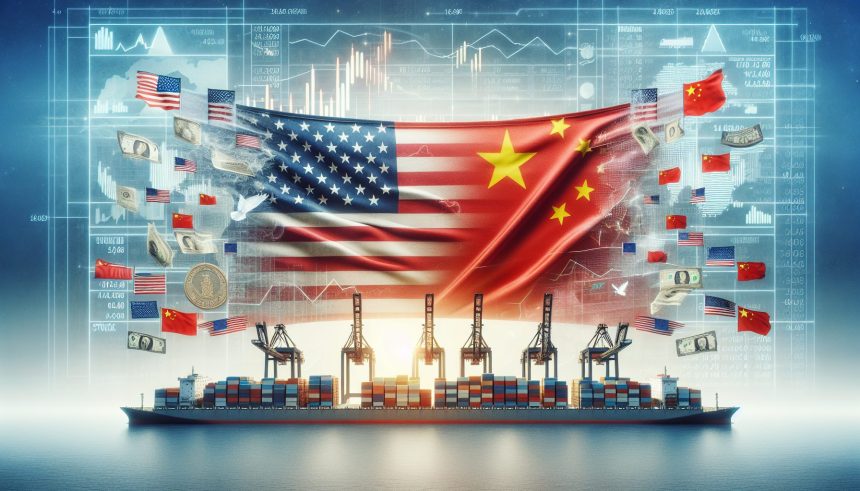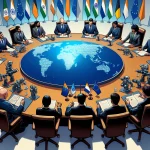President Donald Trump’s administration has reached a trade truce with China, agreeing to cut tariffs on each other’s goods for the next 90 days. The U.S. will reduce tariffs on Chinese imports from 145% to 30%, while Beijing will lower its retaliatory tariffs from 125% to 10%. “We achieved a total reset with China,” President Trump said at the White House on Monday morning.
The agreement was reached after two days of closed-door discussions between U.S. Treasury Secretary Scott Bessent, Trade Representative Jamieson Greer, and their Chinese counterparts in Geneva. White House press secretary Karoline Leavitt called the deal “an extraordinary step in the right direction.”
The trade truce follows an initial agreement with the United Kingdom, which Trump touted as “the first of many.” Commerce Secretary Gina Raimondo suggested that more deals are expected, driving economic growth. However, Trump’s approval ratings have been sliding since his return to the White House nearly four months ago, with concerns over the economy and inflation contributing to the drop.
A recent national poll showed Trump at 44% approval and 55% disapproval, with his approval on the economy at 38% and just 33% on inflation and tariffs. The president’s blockbuster tariff announcement in early April sparked a trade war and triggered a massive sell-off in the financial markets.
Historic tariff agreement reached
Now, with the truce with China, Trump has a chance to show tangible results. “President Trump has argued that his agenda requires time for adjustment and deal making. He’ll be given a period of time to execute deals to prove that his plans are working,” said veteran Republican strategist Ryan Williams.
The markets reacted positively to the news, with Hong Kong’s Hang Seng Index and the S&P 500 both rebounding. However, experts warn that this might only be the beginning of a prolonged economic confrontation between the U.S. and China. China has been accelerating its self-sufficiency initiatives in reaction to the trade tensions, with plans to bolster domestic industries, particularly in critical minerals.
The business community remains cautiously optimistic, welcoming the tariff suspension but highlighting ongoing concerns over long-term planning and competitiveness. While the recent agreement offers a temporary reprieve, the underlying tensions highlight the ongoing need for strategic economic planning and diversification. Both nations appear poised to navigate a complex economic landscape, with businesses worldwide adjusting to new realities of global trade.







